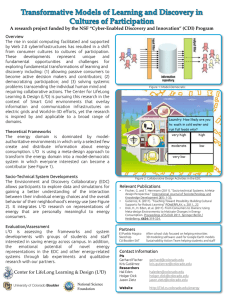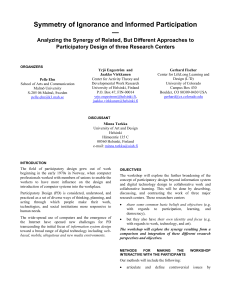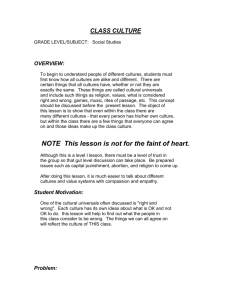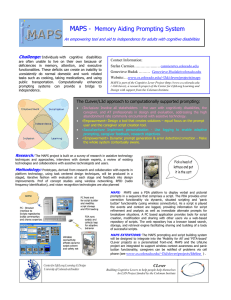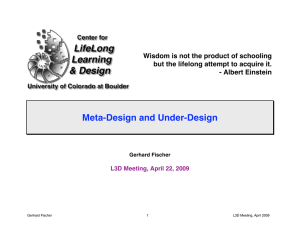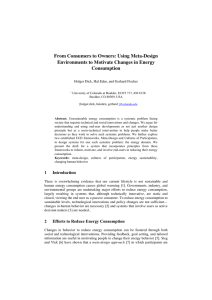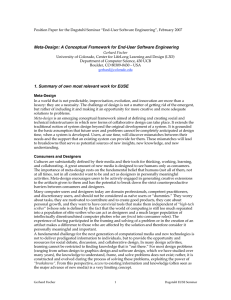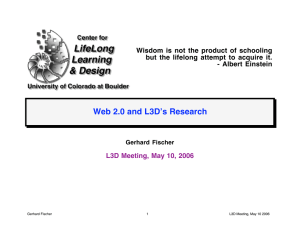A research project funded by the NSF “Social-Computational Systems” (SoCS)...
advertisement
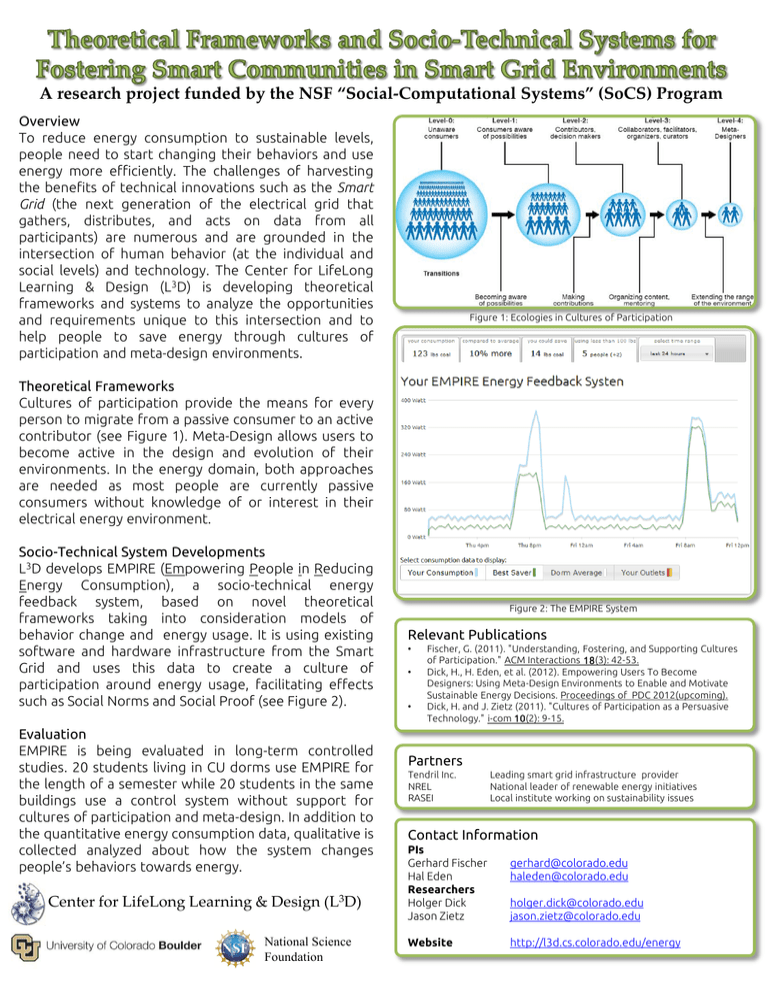
A research project funded by the NSF “Social-Computational Systems” (SoCS) Program Overview To reduce energy consumption to sustainable levels, people need to start changing their behaviors and use energy more efficiently. The challenges of harvesting the benefits of technical innovations such as the Smart Grid (the next generation of the electrical grid that gathers, distributes, and acts on data from all participants) are numerous and are grounded in the intersection of human behavior (at the individual and social levels) and technology. The Center for LifeLong Learning & Design (L3D) is developing theoretical frameworks and systems to analyze the opportunities and requirements unique to this intersection and to help people to save energy through cultures of participation and meta-design environments. Figure 1: Ecologies in Cultures of Participation Theoretical Frameworks Cultures of participation provide the means for every person to migrate from a passive consumer to an active contributor (see Figure 1). Meta-Design allows users to become active in the design and evolution of their environments. In the energy domain, both approaches are needed as most people are currently passive consumers without knowledge of or interest in their electrical energy environment. Socio-Technical System Developments L3D develops EMPIRE (Empowering People in Reducing Energy Consumption), a socio-technical energy feedback system, based on novel theoretical frameworks taking into consideration models of behavior change and energy usage. It is using existing software and hardware infrastructure from the Smart Grid and uses this data to create a culture of participation around energy usage, facilitating effects such as Social Norms and Social Proof (see Figure 2). Evaluation EMPIRE is being evaluated in long-term controlled studies. 20 students living in CU dorms use EMPIRE for the length of a semester while 20 students in the same buildings use a control system without support for cultures of participation and meta-design. In addition to the quantitative energy consumption data, qualitative is collected analyzed about how the system changes people’s behaviors towards energy. Center for LifeLong Learning & Design (L3D) National Science Foundation Figure 2: The EMPIRE System Relevant Publications • • • Fischer, G. (2011). "Understanding, Fostering, and Supporting Cultures of Participation." ACM Interactions 18(3): 42-53. Dick, H., H. Eden, et al. (2012). Empowering Users To Become Designers: Using Meta-Design Environments to Enable and Motivate Sustainable Energy Decisions. Proceedings of PDC 2012(upcoming). Dick, H. and J. Zietz (2011). "Cultures of Participation as a Persuasive Technology." i-com 10(2): 9-15. Partners Tendril Inc. NREL RASEI Leading smart grid infrastructure provider National leader of renewable energy initiatives Local institute working on sustainability issues Contact Information PIs Gerhard Fischer Hal Eden Researchers Holger Dick Jason Zietz Website gerhard@colorado.edu haleden@colorado.edu holger.dick@colorado.edu jason.zietz@colorado.edu http://l3d.cs.colorado.edu/energy
